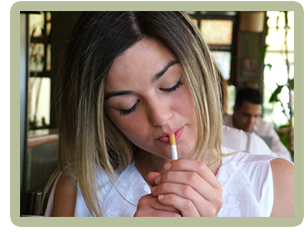Teen Drug Abuse

It's 11:30pm and your teen has just returned home 30 minutes past curfew. He stumbles into his room without making any eye contact and drops a few things off in his room. He makes a couple of vague statements as to where he was and whom he was with, then heads directly to the kitchen. After gobbling down a couple of strange concoctions, he retreats to his room and isn't seen again until mid-afternoon the next day. He awakens thirsty and sluggish. His eyes are bloodshot because he says he is "allergic to something."
What should a situation like this tell an observant parent? Are there any red flags that might indicate a particular problem?
While this may be normal behavior for many teens, the above scenario is one that deserves a closer look. Many parents refuse to believe that their child is experimenting with substances until it is too late. Once confirmed, substance use/abuse is something that should be addressed immediately. Too often, parents either don't recognize the red flags or they fail to acknowledge them because they are in denial.
Here is a list of warning signs that might indicate a substance use and/or abuse problem:
| • | Dramatic change in attitude or personality | • | Hangs out with a new group of friends / Rejects previous friends |
| • | No longer cares about appearance / Poor hygiene | • | Moodiness and irritability |
| • | Uncharacteristic hostility towards family members | • | Dropping grades / Skipping classes / Truancy |
| • | Unusually secretive or suspicious / Paranoid | • | Unusual emotional outbursts |
| • | Dramatic changes in sleeping and/or eating habits | • | Sneaky and manipulative / Lies and steals / Dishonest |
| • | Lack of motivation / Excessive laziness | • | Frequently isolates in room / Withdrawn |
| • | Possession of unusual or unexplained paraphernalia | • | Red and/or glassy eyes / Frequent use of eye drops |
| • | Dramatic change in style of dress | • | Runs away / Stays out past curfew / Makes excuses for not coming home |
| • | Has an overall "I don't care" attitude / Disregard for consequences | • | Slurred or forced speech |
| • | Loss of interest in previously enjoyed activities | • | Valuables around the house are missing |
| • | Unusual odor on clothes or in his/her bedroom / Alcohol on breath |
If you suspect that your teen has a problem with drugs or alcohol, then it is important to tackle the issue immediately. There are a number of resources in every county that can be found easily using the government pages of your local phone book. There are also hotlines and websites that can be of great value.
Minimize the chances that your teen will use or abuse drugs or alcohol by taking the following action:
| 1. | Set a good example. Your teen learns a lot by what he or she sees. Avoid using these substances yourself. | |
| 2. | Make sure that alcohol is not easily accessible in your home. Keep it locked up. Better yet, don't keep it in the house at all. | |
| 3. | Teach your child early on that these substances are unsafe and can literally destroy a person's life. Talk often and be open to these discussions with your child. | |
| 4. | Keep your child busy. Find sports, activities, or clubs that will keep your child occupied during "down" times. | |
| 5. | Educate your child about the dangers of mind-altering substances and teach him or her a list of appropriate ways to say NO. | |
| 6. | Supervise your child. Keeps tabs on where he is and whom he is with. Confirm his whereabouts whenever possible and communicate with the parents of his friends. | |
| 7. | Recognize the warning signs for substance use and abuse. If you suspect that there is a problem then seek professional help immediately. | |